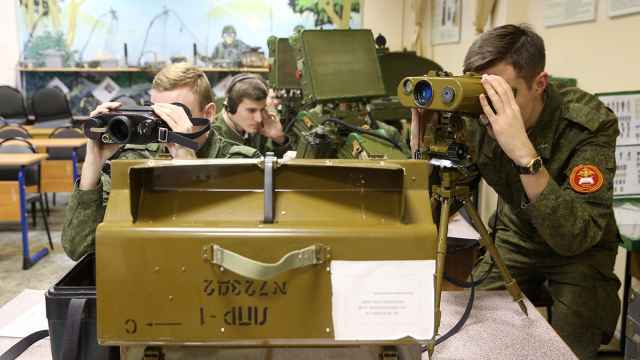Speculation that Russia's state oil company intends to pursue its buying spree has revived, despite a denial from mid-sized oil firm Bashneft that it is Rosneft's latest target.
Since its record $55 billion deal for rival TNK-BP, all non-state oil producing assets have been seen as potential acquisitions for Rosneft, whose powerful CEO Igor Sechin, an ally of President Vladimir Putin over more than two decades, has fashioned Rosneft into an instrument of Kremlin control of Russia's most important industry.
Rosneft's ambitions are potentially constrained by its debt, which reached $70 billion by the end of the first quarter, almost as much as Rosneft itself is worth at current share prices. But deals to pump nearly a million barrels of oil to China could bring $60 billion to $70 billion in export-backed financing.
China National Petroleum Corp. has not confirmed that the crude will be paid for up front in what it called its largest single oil trade.
Rosneft raised most of its debt to finance the TNK-BP acquisition from BP and its local partners, the largest in Russian corporate history. Analysts say the main challenge is now integrating TNK-BP's huge asset base and its people.
But "the possibility of a new wave of M&A activity from Rosneft should not be ruled out given the level of the potential liquidity injection [from China]," J.P. Morgan analysts wrote in a research note on Tuesday.
Russian business daily Vedomosti reported on Tuesday that Rosneft was interested in buying Bashneft, with 300,000 in daily oil production, from Russian oil-to-telecom conglomerate Sistema.
Sistema signed a deal last week to sell its 49 percent stake in oil firm Russneft for $1.2 billion, read by some as a sign it was abandoning its ambitions in oil.
But owner Vladimir Yevtushenkov said his company was not involved in negotiations to sell Bashneft to Rosneft.
Bashneft is worth $12.7 billion, according to data.
Its shares closed down 1.7 percent in late trade, underperforming a 0.1 percent rise in the broader Moscow stock market, reflecting concerns about Rosneft's ability to do another big deal efficiently and favorably for minorities.
Bashneft and Rosneft declined to comment.
Bashneft's fields would provide few synergies with Rosneft's key deposits, but it will soon get a 120,000 bpd boost from its new Trebs and Titov fields in the northern Timan-Pechora province, where Rosneft also has some operations.
The Trebs and Titov license was obtained in a controversial process which ended with Bashneft as the only contender. The license terms included difficult-to-meet refining requirements.
As early as 2006, Rosneft said it was interested in Trebs and Titov but ultimately declined to participate in the license round held in 2010.
Bashneft also has refineries with capacity of more than 24 million tons per year in the Ural mountains region.
"Rosneft has always looked at all the assets in Russia. It's in their blood. The main attraction of Bashneft is that it's relatively small," said Alexei Kokin, an analyst with Uralsib brokerage.
But even after Rosneft's balance sheet gets help from China, analysts have a mixed view on its acquisition power.
The company said it was contemplating a program to help it cope with integrating TNK-BP and pay down debt but denied any immediate pressure to do so.
Julia Pribytkova, a senior analyst with Moody's Investors Service, said Rosneft's debt to core earnings ratio stood at 2.2, higher than at its European peers, and would become a risk to its rating if it exceeded three times.
"A Chinese financing deal could help Rosneft continue acquisitions, but adopting this strategy will be constrained by the political landscape, not money," Pribytkova said.
"Rosneft would be interested in big players, which are controlled by influential groups so potential acquisitions could be subject to the political alliances they form."
A Message from The Moscow Times:
Dear readers,
We are facing unprecedented challenges. Russia's Prosecutor General's Office has designated The Moscow Times as an "undesirable" organization, criminalizing our work and putting our staff at risk of prosecution. This follows our earlier unjust labeling as a "foreign agent."
These actions are direct attempts to silence independent journalism in Russia. The authorities claim our work "discredits the decisions of the Russian leadership." We see things differently: we strive to provide accurate, unbiased reporting on Russia.
We, the journalists of The Moscow Times, refuse to be silenced. But to continue our work, we need your help.
Your support, no matter how small, makes a world of difference. If you can, please support us monthly starting from just $2. It's quick to set up, and every contribution makes a significant impact.
By supporting The Moscow Times, you're defending open, independent journalism in the face of repression. Thank you for standing with us.
Remind me later.





